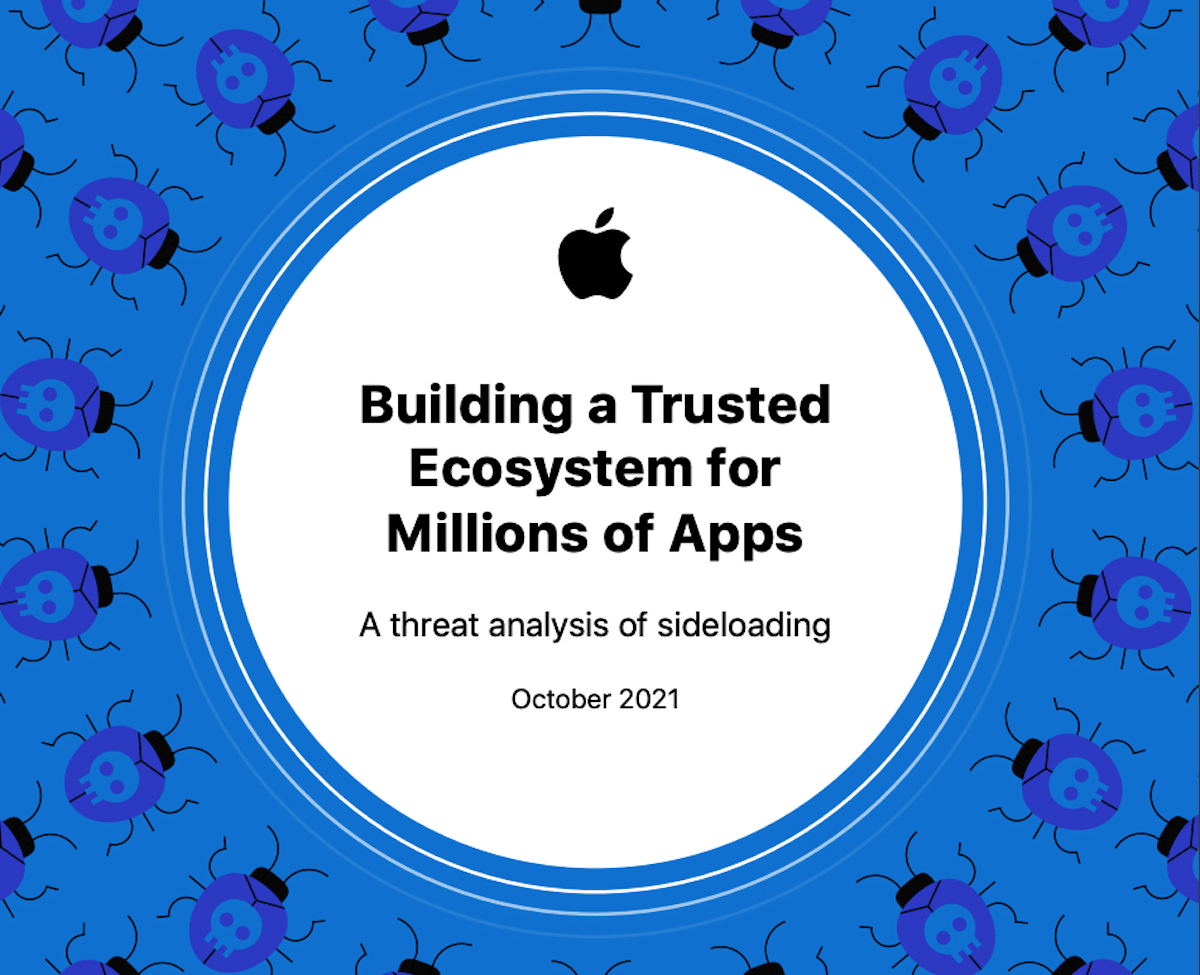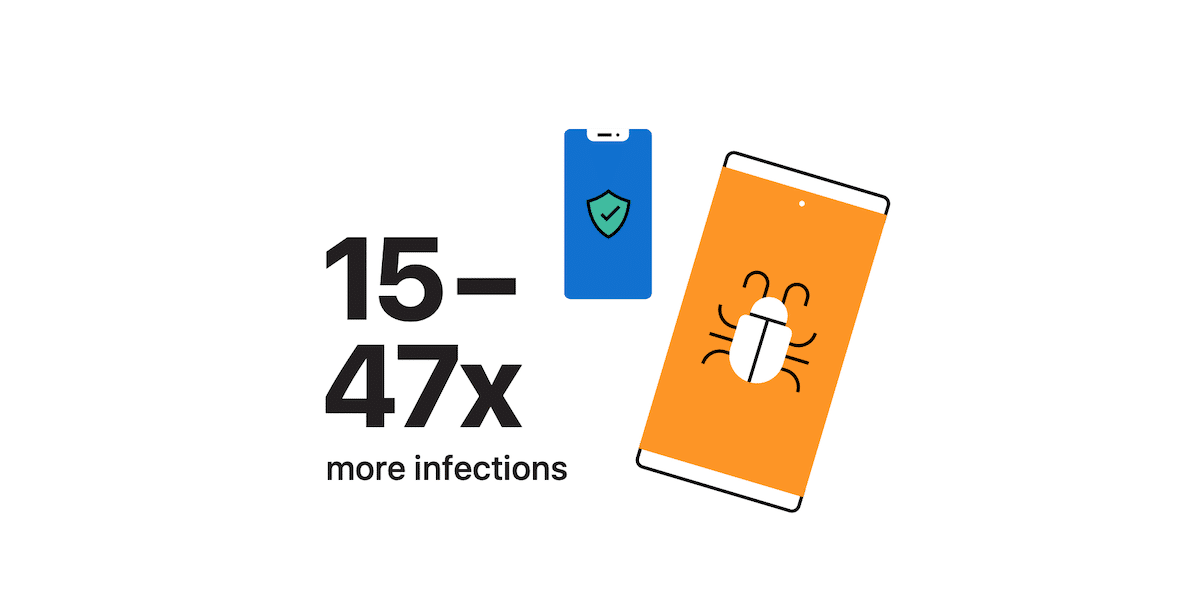Some regulators and developers are demanding that Apple allows third-party app stores on iOS devices as an alternative to the App Store for apps distribution, called sideloading. They argue Apple abuses its market position by forcing App Store’s rules on developers and stifles competition. The tech giant denies allegations of anti-competitive practices by explaining that the App Store review process and rules are placed to vet all apps to filter out and prevent mobile malware from existing on the iPhone.

To push its case further, Apple has published another security paper on the threats of sideloading on iOS which will drastically impact users’ privacy and security because “iPhone is a highly personal device where users store some of their most sensitive and personal information. This means that maintaining security and privacy on the iOS ecosystem is of critical importance to users.”
Apple reiterates that sideloading will make iPhone vulnerable to malware infections like Android devices
In the previous privacy white paper, the iPhone maker explained all the possible ways a malicious app can threaten their privacy and security. In the new report ‘Threat Analysis of Sideloading’, the company gives more stats to substantial its argument against sideloading. The company highlights that 15 to 47 times more malware infections are found on Android devices than on iPhones because of sideloading. Google allows users to download apps on Android smartphones and tablets outside of the Play Store.

Apple explains that the App Store rules and review process acts as a barrier against malicious apps which could steal users’ private information like credit card details, passwords, monitor their activity, and a lot more. Therefore, mobile malware is harmful to all stakeholders: “consumers, companies, developers, and advertisers.”
Attacks on users employ various tactics and techniques. Common types of mobile malware affecting consumers are adware, ransomware, spyware, and banking and other credential-stealing trojans that masquerade as legitimate apps.
Cybercriminals often reach their targets through social engineering or supply chain attacks, and sometimes use popular social media networks to spread the scams and attacks. Most rely on third-party app stores or direct downloads to spread malicious apps.
Developers and advertisers are also harmed by these attacks, mostly through piracy, intellectual property theft, and loss of advertising revenue.
Currently, South Korea is the only country that could force Apple to open its iOS devices to sideloading. The country is going to implement a new law that will prevent the Cupertino tech giant and Google from forcing developers to use their in-app payment and app distribution methods. The EU Commission was going to pass new laws to do the same, but reports claim that the laws are bogged down by politicians’ disagreement over the scope of the new regulatory measures.
In the Epic Games vs. Apple lawsuit ruling, Judge Roger did find App Store rules and payment structure as anti-competitive which the Cupertino tech giant deems as a validation for its digital marketplace. Read the complete report here.